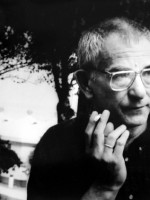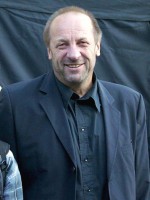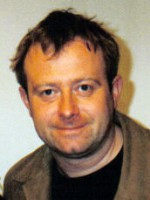Dariusz Jabłoński est un Acteur, Réalisateur, Scénariste, Producteur et Assistant Director Polonais né le 30 mai 1961

Dariusz Jabłoński (born 1961) is a Polish film director and producer, president of his own production company, Apple Film Productions, and one of the leading independent producers in Poland.
In 1990 he founded Apple Film Productions, which has produced more than 21 documentaries, 15 feature films and numerous tele-plays. Most of these were co-produced by Polish Television, Canal+, WDR, ARTE as well as other international producers. Additionally, many of these productions have received myriad international film awards.
Jabłoński is a founder of the Polish Film Awards and the Polish Film Academy as well as of the Independent Film Foundation, created to promote Art House films and their writers. The Independent Film Foundation is also running "ScripTeast", an innovative training program designed specifically for experienced scriptwriters from Eastern and Central Europe. He has finished many special courses (ex. European Film College) and received many international scholarships for European film professionals. He is also a member of the European Film Academy.
Source : Wikidata
Dariusz Jabłoński

- Infos
- Photos
- Meilleurs films
- Famille
- Personnages
- Récompenses
Biographie
Jabłoński is a graduate of the Film Directing Academy in Łódź, Poland. He has worked on the biggest films in Polish cinematography –- as a Second Director on "Decalogue" by Krzysztof Kieślowski and as First Assistant Director on the "White Visiting Card" and "Magnate" by Filip Bajon. He produced and directed "The Visit of an Elderly Lady" (1986) -- the first Polish independent film—and Photographer (1998), which received a number of international film awards: Grand Prix FIPA D'OR and Prix Planete in Biarritz (1999); Grand Prix VPRO Joris Ivens Award at IDFA in Amsterdam (1998); Prix Europa for Best Non-fiction TV Program (1998); Best Documentary in Banff (1999); Best Documentary at Double Take, Durham; Grimme Prize in Germany (2000); Bavarian TV Prize (1999). His work has also been screened at the TOP TEN Mediaforum Conference in Cologne. In addition, he has won awards at many international and Polish film festivals.In 1990 he founded Apple Film Productions, which has produced more than 21 documentaries, 15 feature films and numerous tele-plays. Most of these were co-produced by Polish Television, Canal+, WDR, ARTE as well as other international producers. Additionally, many of these productions have received myriad international film awards.
Jabłoński is a founder of the Polish Film Awards and the Polish Film Academy as well as of the Independent Film Foundation, created to promote Art House films and their writers. The Independent Film Foundation is also running "ScripTeast", an innovative training program designed specifically for experienced scriptwriters from Eastern and Central Europe. He has finished many special courses (ex. European Film College) and received many international scholarships for European film professionals. He is also a member of the European Film Academy.
Le plus souvent avec
Filmographie de Dariusz Jabłoński (17 films)
Acteur
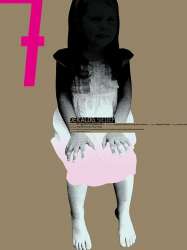 , 55minutes
, 55minutesRéalisé par Krzysztof Kieślowski
Genres Drame
Acteurs Anna Polony, Dariusz Jabłoński, Bogusław Linda, Artur Barciś, Bożena Dykiel
Rôle Wojtek's Friend
Note77%





La directrice d'un lycée, découvrant que sa fille, Majka, est enceinte d'un professeur, décide d’étouffer le scandale en se faisant passer pour la mère de l'enfant. Quelques années plus tard, Majka, voulant récupérer son enfant, le kidnappe. Sa mère les retrouve. Majka, désespérée, part pour le Canada.
Réalisateur
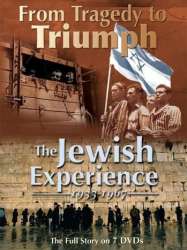
Fotoamator (1998)
, 52minutesRéalisé par Dariusz Jabłoński
Genres Guerre, Documentaire, Historique
Thèmes Le racisme, Religion, Documentaire sur la discrimination, Documentaire sur le droit, Documentaire sur la guerre, Documentaire historique, Documentaire sur une personnalité, Documentaire sur la religion, Politique, Religion juive, Documentaire sur la Seconde Guerre mondiale
Acteurs Artur Brauner
Note72%





Scénariste

Fotoamator (1998)
, 52minutesRéalisé par Dariusz Jabłoński
Genres Guerre, Documentaire, Historique
Thèmes Le racisme, Religion, Documentaire sur la discrimination, Documentaire sur le droit, Documentaire sur la guerre, Documentaire historique, Documentaire sur une personnalité, Documentaire sur la religion, Politique, Religion juive, Documentaire sur la Seconde Guerre mondiale
Acteurs Artur Brauner
Note72%





Producteur
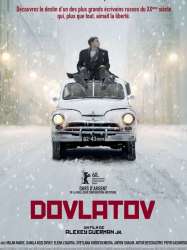
Dovlatov (2018)
Réalisé par Alexeï Guerman Jr
Origine Russie
Genres Drame, Biographie
Acteurs Milan Marić, Danila Kozlovski, Anton Shagin, Elena Lyadova, Svetlana Khodtchenkova, Piotr Gąsowski
Rôle Producteur
Note63%





URSS, 1971. Six jours dans la vie de l’auteur Sergei Dovlatov, qui se bat pour écrire avec intégrité malgré l’écrasante censure imposée par le régime soviétique.

Under Electric Clouds (2015)
, 2h18Réalisé par Alexeï Guerman Jr
Origine Russie
Genres Drame, Science-fiction
Acteurs Merab Ninidze, Tchoulpan Khamatova, Piotr Gąsowski, Vanessa Scalera, Davide Iacopini
Rôle Producteur
Note62%






Pokłosie (2012)
, 1h47Genres Drame, Thriller
Thèmes Religion, Politique, Religion juive
Acteurs Maciej Stuhr, Jerzy Radziwiłowicz, Zuzana Fialová, Zbigniew Zamachowski, Danuta Szaflarska
Rôle Producteur
Note72%





The film is a contemporary drama. It takes place in the fictional village of Gurówka in 2001. The story begins with the return of Franciszek Kalina (Ireneusz Czop) to his hometown in rural Poland after having lived in Chicago for decades. He learns that his brother Józef (Maciej Stuhr) is shunned by the community for acquiring and displaying on his farmland dozens of Jewish tombstones which he discovered had been used by German occupying forces as paving stones in a now abandoned road. Józef is gathering the tombstones everywhere in the settlement and moves them into his own field to survive from oblivion. Against the growing opposition of the town residents, the Kalina brothers attempt to learn more about what happened to the Jews of the village. Their personal relationship, harsh after the brothers met, warms and becomes more cooperative after they both find themselves opposed by the whole village. The older priest blesses the brother and urges him to continue gathering the tombstones while the new one, to head the parish soon, displays no sympathy for Jews. Franciszek discovers in a local archive that his father along with other men of the village got the land that had been owned by Jews before the war. He is eager to study the truth. After speaking to some of the oldest residents in the village, they later realize that half the residents murdered the other half (led by a neighbor and their father Stanisław Kalina). This discovery results in a terrible fight and split between the brothers after a dispute about the bones of the Jews they found the night before. Józef, after learning that their own father was directly involved in the murder of the Jews who were burned to death in Józef's family's former house, the brother's roles are reversed and it is Józef that wants to hide the truth from coming out to the world and Franciszek that wants all the world to know the truth and for the bones of the murdered Jews to be taken to their wheat fields and buried with their headstones, so as to not compound the terrible sins of their father and the neighbors. In their fight, Franciszek comes close to killing his brother Józef but Franciszek stops himself, puts the ax down and leaves the village but is returned to the village by a hospital nurse/doctor, the daughter of one of the oldest surviving neighbors who had known the truth but kept it secret, to see his brother beaten, murdered and crucified in their own yard. The movie ends with a scene of a group of young and older Israeli Jews being led by an Orthodox Rabbi reciting the Kaddish, the Jewish prayer in memory of the dead, in front of a formal memorial stone, at the now restored cemetery that Józef had made in his fields, while Franciszek watches with respect, lights a candle, leaves it on one of the tombstones and nods slightly to the scene, turns and walks away, satisfied that these Jews are now buried where their lives and their deaths, can be remembered and honored, while at the same time, lighting a candle, in remembrance and in honoring his own brother, Józef who was crucified by unknown neighbor(s), symbolically dying for the sins of his father and the neighbors.
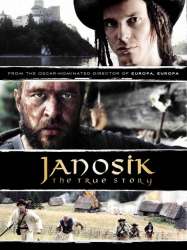
Janosik : Une histoire vrai (2009)
, 2h17Réalisé par Agnieszka Holland, Katarzyna Adamik
Genres Drame, Guerre, Romance
Acteurs Michał Żebrowski, Danuta Szaflarska, Jarosław Boberek, Joanna Kulig, Małgosia Bela, Maja Ostaszewska
Rôle Producteur
Note50%





XVIII siècle. Janosik a passé sa jeunesse dans l'armée et il a été confronté à la violence, à la cruauté et à l'injustice. En rentrant chez lui, il rejoint une bande de brigands. Intrépide, charismatique et guerrier habile, il s'impose très vite comme leur chef. Volant les riches pour redistribuer aux plus démunis, magnanime, laissant la vie sauve à ses victimes, il devient rapidement très populaire dans la région. Mais son insolent succès réveille des haines et des jalousies : désormais, son existence est menacée....
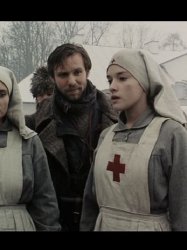
Wrota Europy (1999)
, 1h13Acteurs Alicja Bachleda-Curuś, Kinga Preis
Rôle Producteur
Note60%





In January 1918, three volunteer nurses came to the field hospital and Polish Corps located in the manor in Ciechiniczach (Cichiniczach) between Rahačoŭ and Bobrujskiem. Sophie, one of the nurses, finds her previously missing brother. When the hospital gets into the hands of the Bolsheviks, the sisters must cope not only with patient care, but also the brutality of the enemy soldiers.

Fotoamator (1998)
, 52minutesRéalisé par Dariusz Jabłoński
Genres Guerre, Documentaire, Historique
Thèmes Le racisme, Religion, Documentaire sur la discrimination, Documentaire sur le droit, Documentaire sur la guerre, Documentaire historique, Documentaire sur une personnalité, Documentaire sur la religion, Politique, Religion juive, Documentaire sur la Seconde Guerre mondiale
Acteurs Artur Brauner
Rôle Producteur
Note72%





Directeur
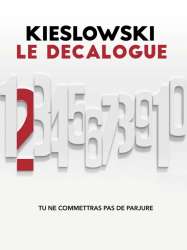 , 57minutes
, 57minutesRéalisé par Krzysztof Kieślowski
Genres Drame
Thèmes La grossesse, Maladie, Sexualité
Acteurs Krystyna Janda, Aleksander Bardini, Olgierd Łukaszewicz, Artur Barciś, Stanisław Gawlik, Piotr Fronczewski
Rôle First Assistant Director
Note77%





Andrezj est malade. Dorota, sa femme, est enceinte mais pas de lui. Si Andrezj a des chances de vivre, elle se fera avorter. Le médecin ne lui laisse aucun espoir, Andrezj va mourir. Pourtant il vit... et ils gardent l'enfant. "Du point de vue moral, le juste choix est toujours celui de la vérité. Mais la vérité ici n'est pas le bon choix puisqu'elle ne respecte pas la vie. Le parjure devient nécessaire."
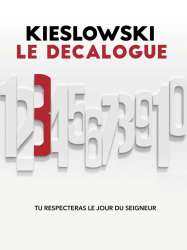 , 56minutes
, 56minutesRéalisé par Krzysztof Kieślowski
Genres Drame, Romance
Acteurs Daniel Olbrychski, Joanna Szczepkowska, Artur Barciś, Henryk Baranowski
Rôle First Assistant Director
Note2%





Janusz s’apprête à passer Noël en famille entoure de sa femme et de ses enfants. Quand Eva, une ancienne maitresse, lui demande de l'aider a retrouver son mari qui n'est pas rentre. Janusz invente un prétexte et suit Eva qui lui avoue au petit matin que son mari l'a quittée depuis des années. Janusz rentre chez lui ou sa femme l'attend.
 , 56minutes
, 56minutesRéalisé par Krzysztof Kieślowski
Genres Drame
Acteurs Janusz Gajos, Aleksander Bardini, Artur Barciś, Igor Śmiałowski, Andrzej Chyra
Rôle Assistant Director
Note2%





Anka est très liée avec son père Michal. Pendant un voyage de ce dernier elle trouve une lettre que sa mère, morte a sa naissance, lui a adressée, lui révélant que son père n'est pas Michal. De retour, Michal apprend la vérité mais refuse cependant de céder aux avances d'Anka. Elle lui avoue qu'elle a en fait réalise un faux...
 , 58minutes
, 58minutesRéalisé par Krzysztof Kieślowski
Genres Drame, Romance
Acteurs Ewa Błaszczyk, Artur Barciś, Jerzy Trela
Rôle Assistant Director
Note80%





Roman, atteint d'impuissance, soupçonne sa femme Hanka d'avoir une liaison. Il la surveille et la surprend au moment ou elle mettait fin a sa liaison.
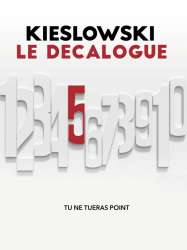
Tu ne tueras point (1990)
, 57minutesRéalisé par Krzysztof Kieślowski
Genres Drame, Policier
Thèmes La peine de mort
Acteurs Mirosław Baka, Artur Barciś, Krystyna Janda, Krzysztof Globisz, Zbigniew Zapasiewicz, Olgierd Łukaszewicz
Rôle Assistant Director
Note2%





Un jeune homme assassine le chauffeur d'un taxi qui le mène dans les faubourgs. Il est condamné à la pendaison. "Ce film est né d'une nécessité de parler de la peine de mort. Cette face là de la mort pèse sur nous et nous rend tous coupables". Contrairement à "Tu ne tueras point" qui est axé sur le point de vue de l'avocat, "le Décalogue 5" présente le point de vue du "héros".
 , 58minutes
, 58minutesRéalisé par Krzysztof Kieślowski
Genres Drame
Acteurs Olaf Lubaszenko, Grażyna Szapołowska, Artur Barciś, Stanisław Gawlik
Rôle Assistant Director
Note85%





Tomek observe sa voisine, Magda, a l'aide d'une longue-vue. Il réussit a vaincre sa timidité et finit par la rencontrer. C'est un fiasco. Il tente de se suicider. Magda vient alors vers lui. "Le vrai sujet de ce film, c'est la solitude. Il y a beaucoup de vitres entre les personnages. Chacun souffre dans son coin, puis souffre encore pour parvenir a rencontrer l'autre vraiment. Avant d’être face a face, il y a un prix a payer: celui de la vitre cassée."
 Connexion
Connexion
